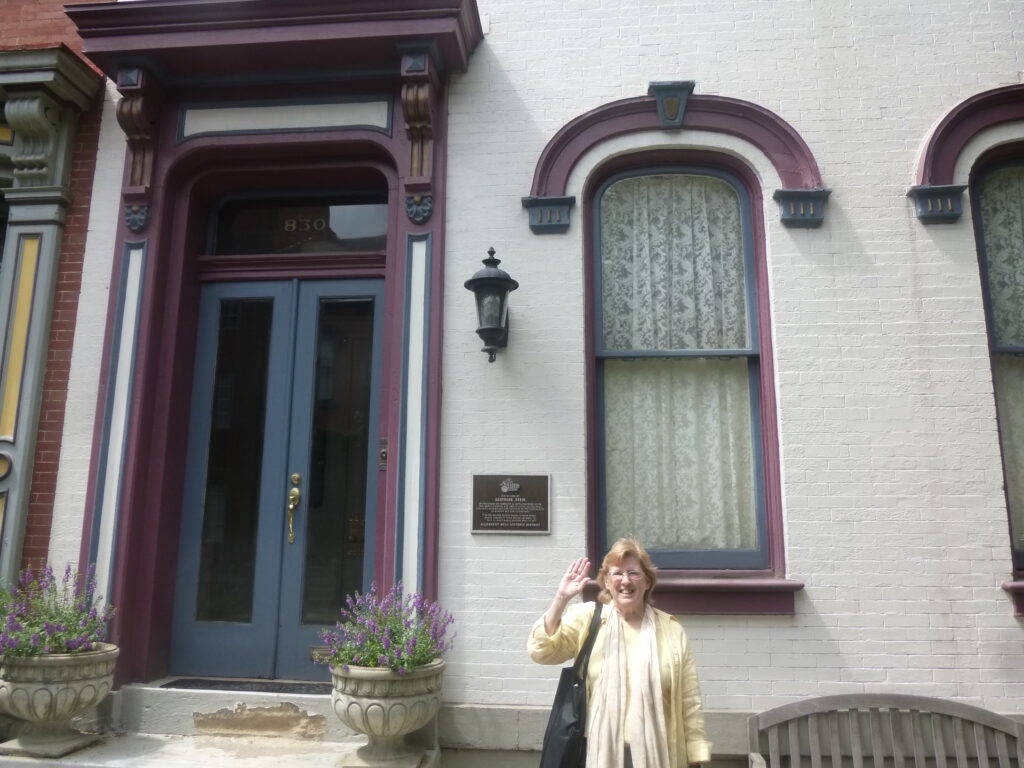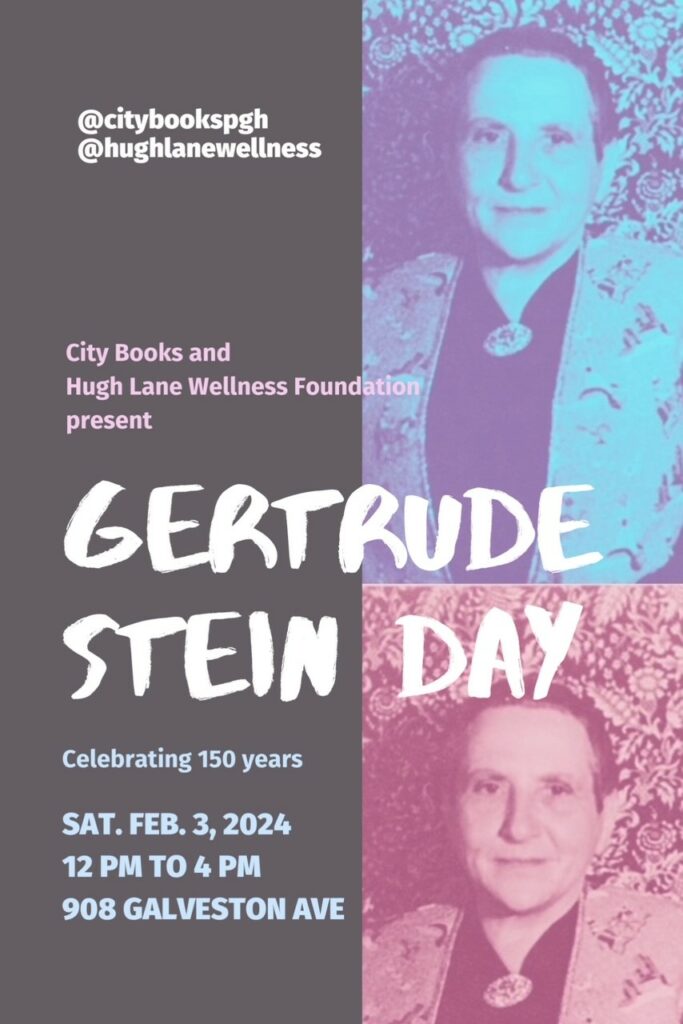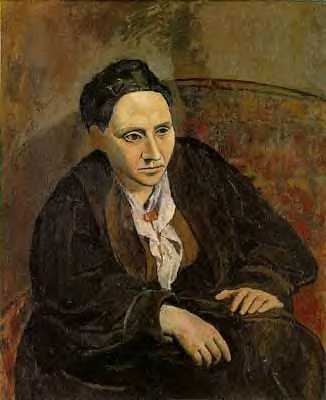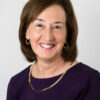Gertrude Stein lived on the North Side of Pittsburgh for less than one year. But author and professor Kathleen Dixon Donnelly and others believe the city can still claim her as its own and fittingly celebrate her 150th birthday this Saturday.
City Books and Hugh Lane Wellness Foundation will host “Gertrude Stein Day” from 1-4 p.m. at the shop at 908 Galveston Ave. The event will feature Stein’s work, giveaways, an information table on the foundation’s work to improve the health of the LGBTQ+ and HIV communities, and refreshments while supplies last, according to a news release. Donnelly, author of the series “Such Friends: The Literary 1920s” and a scholar specializing in Stein and the Americans in Paris group she fostered, will lead an informal discussion of her international legacy and a walk to the front of the author’s birthplace, weather permitting, in what used to be Allegheny City.
During the event Councilman Bobby Wilson, D-Spring Hill, will present the city of Pittsburgh’s “Gertrude Stein Day” proclamation. Stein was born in 1874 at 842 Beech Ave., halfway between the current locations of the independent bookstore and the service organization, which was founded in 2017 to improve the health of the LGBTQ+ and HIV communities.
Donnelly said Stein’s family owned a dry goods store at Fourth and Wood, Downtown, with her father’s brother. The two families lived next to each other on the North Side. “Why they left, the sisters-in-law had a big falling out,” she said.
The Steins lived abroad for a time, then moved to Baltimore and then California. Stein grew up mostly in San Francisco, not far from Alice B. Toklas, her life partner, who lived in Oakland. But they met in Paris, Donnelly said.
The retired professor has been writing the series of “Such Friends” — she has published four volumes to date up to 1923 — that include the comings and goings of the now renowned artists and writers who passed through Stein’s residence that she shared with Toklas. Their group, Americans in Paris, let them gather to discuss the latest happenings in the arts, read to each other from their latest works and gossip, according to her book series’ introduction.
Donnelly emphasizes that Stein, “a genius,” led two such groups, the first before World War I and the second after it. With her brother, Leo, Stein became the impoverished artistic community’s chief benefactor and among the very earliest collectors of experimental paintings by the likes of Pablo Picasso, Henri Matisse, Juan Gris and Georges Braque, according to Art Story. A matriarch within the Parisian bohemian set, she helped broaden the influence of modernism through her associations with other American writers staying in the city, most notably Americans Ernest Hemingway, F. Scott Fitzgerald and Sherwood Anderson (“the lost generation” as she dubbed them), and Britons including Edith Sitwell and Harold Acton.
Picasso painted a portrait of her that is renowned, as Stein and her brother had bought his and Paul Cezanne’s work “for nothing” in those early years, Donnelly said. “They had the paintings in their living rooms; they weren’t in museums,” she explained. “People would come and see them on Saturday evenings.”
At Stein and Toklas’ Parisian apartment, 27 rue de Fleurus, Donnelly wrote, “The burst of creativity that became modernism was brought about by men and women of extraordinary talent and very ordinary pursuits. They ate, they drank, they neglected their families. They praised and berated each other privately and publicly; they bickered endlessly. They complained about money, and few of them had ‘day jobs.’ And they talked. And talked.”
Stein herself wrote and experimented with language, notably repetition. Her famous line — “A rose is a rose is a rose” — will be featured in Saturday’s event’s refreshments and more.
“She was really having fun with it …. She was experimenting,” Donnelly said. The best thing to read to understand Stein’s writing is Alice B. Toklas’ 1932 autobiography, which she notes has a big surprise at the end of it. “She had a big influence on Hemingway — his use of short sentences that can also be traced to his journalistic work. She said to him, ‘Concentrate on it [your creative work] and leave journalism behind.’
“Looking at a lot of what she was doing — and trying to do — I think she is still ahead of us. … We’re still working toward what she was talking about. She was kind of a writer’s writer.”
Donnelly said those interested can find on YouTube and other sites many recordings of her reading her pieces, and what she was trying to do — reflect with words what the painters did with impressionism on canvas — it makes more sense when you hear her reading her stories.
And she noted that Stein, whom she called very musical, also wrote the libretto for an opera by Virgil Thompson, an American composer and critic, who visited Pittsburgh.

Stein never returned to Pittsburgh, Donnelly said. She lived the rest of her life in Paris. “She liked being surrounded by people who spoke other languages, even if she couldn’t understand it. Alice spoke French,” she said.
A point Donnelly stressed is that the couple were very proudly American. They had a car and volunteered with American Fund for French Wounded during World War I, driving to give them gifts and food, and the French government honored them. As far as rumors about Stein during World War II, Donnelly said she was not a Nazi collaborator but was friends with one who protected her and that’s how she made it through World War II. “She was very patriotic,” she said.
Stein and Toklas are buried in Père Lachaise Cemetery in Paris, with Alice behind Gertrude, Donnelly said. Allegheny is misspelled on Stein’s tombstone.
Donnelly’s scholarly work has focused on creativity, which dates back to the master’s degree she earned at Duquesne University. Her dissertation, “Such Friends,” for her doctorate degree in communications from Dublin City University, focused on the relationships among writers in early 20th-century salons. In addition to Stein’s group, she also studied the Irish Literary Renaissance, the Bloomsbury Group and the Algonquin Round Table.
Donnelly taught at then Point Park College, Florida International University and retired as a senior lecturer at Birmingham City University. Since retirement she has taught for Boston University’s Study Abroad program in London and the University of Worcester in Jinan, China.
Donnelly has given presentations on the writers, including film showings, for lifelong learning programs in the United States as well as the United Kingdom, most recently at Osher at Carnegie Mellon University and the University of Pittsburgh. She also led informal “Such Friends” walking tours of the Left Bank of Paris and organized the “Such Friends” tour of Ireland for the 100th anniversaries of James Joyce’s Bloomsday and the Abbey Theatre. She has organized and led a tour of the Bloomsbury sites in Kent and Sussex for private American clients.
She doesn’t plan anything that formal Saturday — “No PowerPoints!” — and will give attendees plenty of opportunities to ask questions. Donnelly said the plan is to walk over to Stein’s house several times. According to the Allegheny City Society website, “The house has remained a single-family residence from the late 19th century to the present day. The exterior and interior were nicely restored and preserved in the 1980s.”
Donnelly’s book series will be available for purchase on Saturday and at Riverstone Books in Squirrel Hill. They can also be purchased on Amazon.com and Amazon.co.uk in print and e-book formats.

Helen is a copy editor at the Pittsburgh Post-Gazette, but she's currently on strike. Contact her at hfallon@unionprogress.com.



